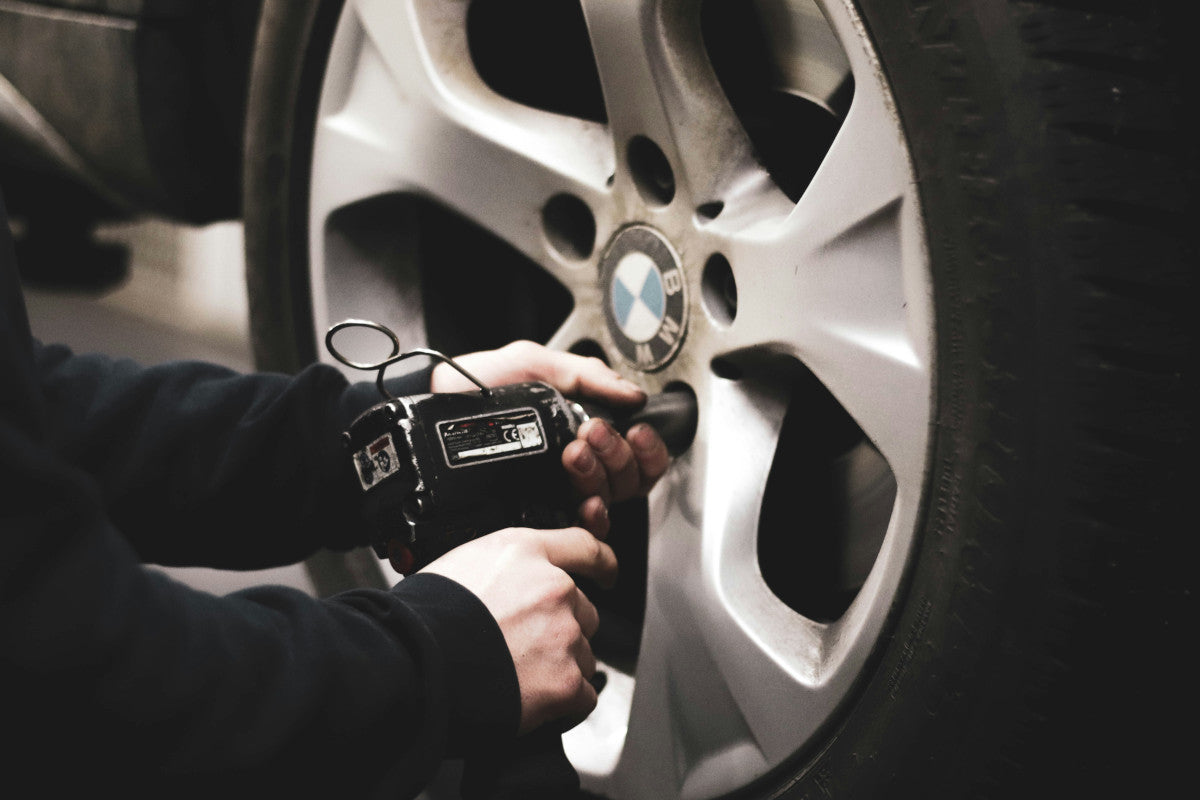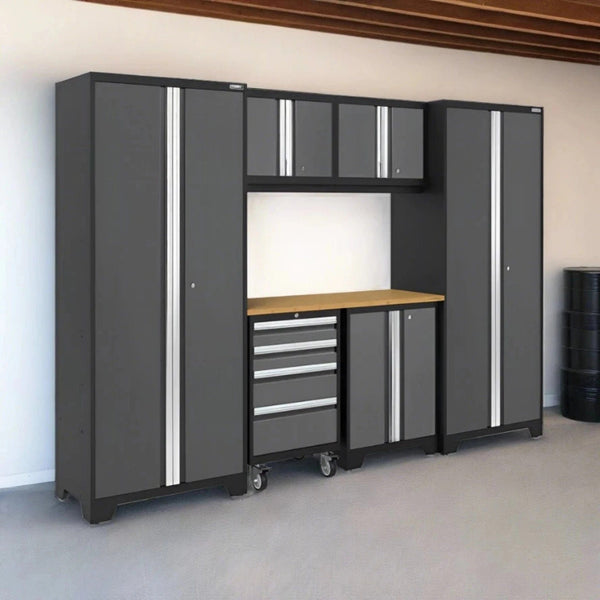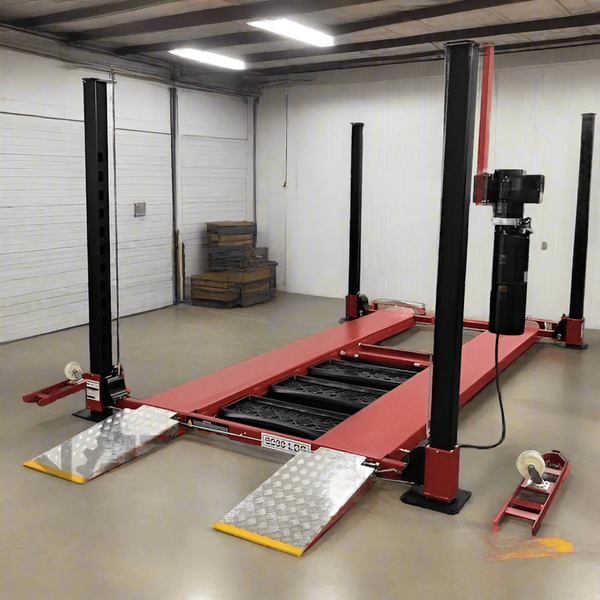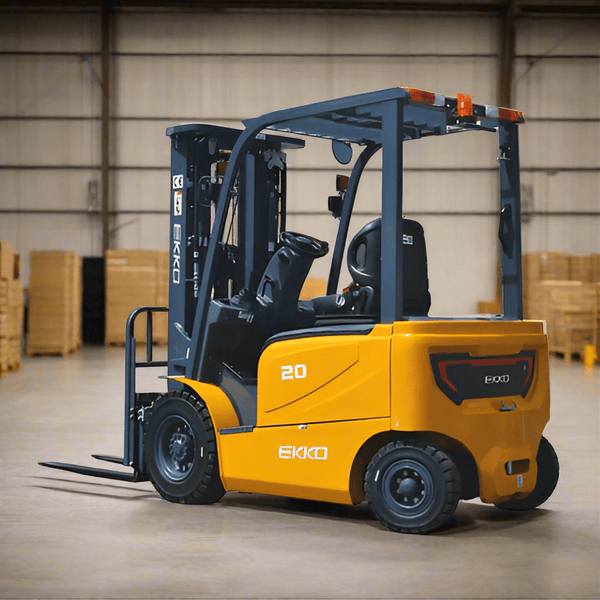
How Much Does a Tire Changer Cost?
A high-quality tire changer can save your shop hours of labor each week, cut down on damaged rims, and make every tire replacement faster and safer. It’s one of those tools that quickly pays for itself in efficiency and reliability. But how much does a tire changer cost, exactly?
There’s no one-size-fits-all answer for typical tire changer machine prices. It all depends on the type of machine, capacity, automation level, brand, and included accessories. For instance, we here at My Garage Supplies have tire changers starting at $448 and exceeding $15,000!
You’ll find a detailed breakdown of pricing below to help you understand what to expect when you invest in a tire-changing machine for your shop. Just know that My Garage Supplies offers the lowest prices on the top brands, backed by expert guidance and hassle-free financing.
Shop tire changers now and get the best value for your workflow today!
Factors Influencing Tire Changer Machine Prices
We want to start by walking you through all the moving pieces at play to help you get a better sense of tire changer machine prices. This will help you understand what you’re really paying for.
Type of Tire Changer
A tire changer’s design and functionality play the biggest role in its cost. There are three main styles on the market today:
- Manual Tire Changers typically start under $500. They’re completely hand-operated and ideal for hobbyists, small garages, or low-volume tire work. They take longer to use but are simple to maintain and don’t require electricity or air.
- Swing-arm models are the most affordable powered model. They’re more than enough for small garages or light use - simple, durable, and easy to maintain.
- Tilt-back changers cost more but speed up workflow dramatically, as the mounting head automatically tilts back for faster loading.
- Leverless or fully automatic systems are the top tier. They use advanced automation to handle low-profile and run-flat tires with minimal manual effort - perfect for high-volume commercial shops.
Build Quality and Material Construction
A lift’s longevity and reliability come down to materials and craftsmanship - and this is a perfect example of, “you get what you pay for.”
Machines made from reinforced steel frames, industrial-grade hydraulics, and precision-machined clamps will obviously cost more, but they’ll reduce downtime and last far longer.
On the opposite end of the spectrum you have lighter, budget-tier models made from thinner steel and simpler mechanisms. That’s fine for occasional use but will cost you more in the long run if you put your machine through heavy use daily.
Lifting Capacity and Rim Compatibility
Tire changers designed for larger wheels and heavy-duty vehicles are priced higher because they need stronger bead breakers, more powerful motors, and adaptable clamping jaws.
Entry-level machines handle most passenger cars, while premium units can accommodate up to 47-inch tires and 28-inch rims. You’ll have to think about the types of vehicles you service and determine whether it’s worth paying more for a higher-capacity unit upfront. This way, you’re not limited down the road.
Additional Attachments and Assist Features
You might not just be purchasing the tire changer itself, but assist arms, bead press tools, and air blast inflation systems for convenience purposes. These attachments make mounting and demounting stiff sidewalls easier and safer, especially for performance or low-profile tires.
Shops that source their equipment from us consistently report back and say that buying these accessories upfront ends up being a well-justified expense with faster service times and less technician strain.
Brand Reputation and Warranty Coverage
Brand quality and support affect tire changer machine prices, too. You’ll pay different prices for a Ranger vs Atlas tire changer - that’s because they have different reputations for machine reliability, longevity, and customer service.
A comprehensive warranty covering hydraulics, electronics, and structural components is worth paying extra for. This gives you peace of mind knowing your investment is protected.
How Much Does a Tire Changer Cost?
All that being said, how much does a tire changer cost on average? Where exactly will you fall on that wide range we referenced earlier of $448 to $15,000+?
Commercial vs Residential Tire Changers
The easiest way to get a sense of what you can expect is to narrow it down to either a commercial or residential tire-changing machine.
Commercial tire changers are designed for speed, durability, and frequent use. They have stronger motors, reinforced bead breakers, and automation to save labor and time. You can reasonably expect to pay $1,500-$5,000 for these.
Residential or small-garage tire changers are simpler and smaller - and in some cases, totally manual. At the lowest level, expect to pay $500-$750. That being said, we’ve sold machines between $1,000-$2,000 to homeowners, so it’s not unheard of.
Price Differences Between Standalone Units and Combos
Now, it’s worth noting that you came here asking - how much does a tire changer cost? But there is also a tire changer and balancer combo collection at My Garage Supplies if you want to consolidate your shop’s equipment needs!
Standalone tire changers are a good starting point for shops with limited budgets or space. They perform one task - mounting and dismounting tires. But if your shop changes tires, you probably balance them as well. You can actually save money by investing in a dual-use machine.
So how much does a tire changer cost if it has balancing capabilities as well? Combo units generally start around $2,800 and can exceed $6,000 for premium systems like the Katool KT-T850 + KT-B750 package. But, these types of systems pay for themselves!
Don’t Forget the Cost of Maintenance and Operation!
Upfront tire changer machine prices are just one thing to consider. Similar to the wheel alignment machine cost, you should think about the ongoing cost of operation/maintenance.
Routine upkeep includes lubricating moving parts, checking air lines, and replacing wear components like clamp pads and seals. These small expenses are predictable and essential for keeping your machine reliable. That’s not to mention the electricity and compressed air needed.
Higher-quality machines from brands like Atlas, Katool, and AMGO typically require less frequent maintenance and offer better parts support. We touched on this already, but we always recommend investing in a premium brand for this reason!
Get a Low-Cost Tire Changer For Your Workflow at My Garage Supplies!
You don’t have to break the bank to upgrade your shop’s workflow. My Garage Supplies carries a lineup of low-cost tire changer machines starting at $448. These aren’t cheap, low-quality solutions, either. We’ve handpicked the brands and models we carry with performance and reliability in mind.
Every product we carry is backed by expert guidance, so you can confidently choose the right machine for your workflow. We also offer hassle-free financing, free US shipping, and ongoing customer support to help you get the most from your investment.
From tire-changing machines to the best car lift brands, the best wheel balancer manufacturers, and everything in between - this is your one-stop shop for essential garage equipment. Get in touch today to talk financing or get help finding the best machine within your budget!
Final Thoughts on Tire Changer Machine Prices
So, how much does a tire changer cost? In closing, tire changer machine prices vary depending on the type, construction, brand, and a few other factors. Your best bet is to get really specific about the machine you need, and then take a look at our collection to compare prices.
Most of all, remember that quality, durability, and ongoing support matter just as much as price. Investing wisely now saves money and downtime later. Take the next step at My Garage Supplies!



